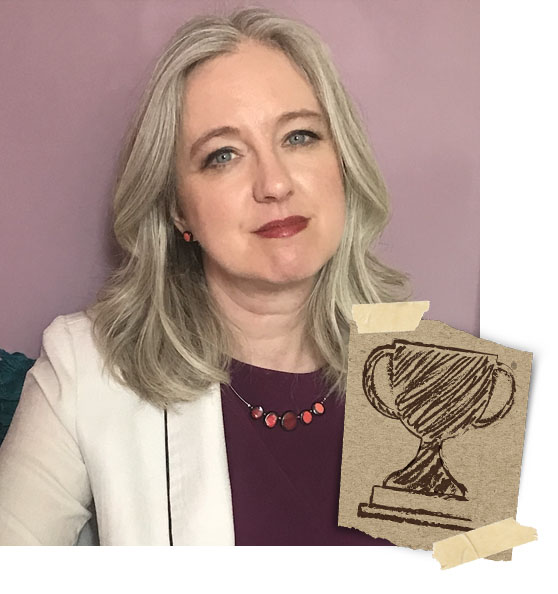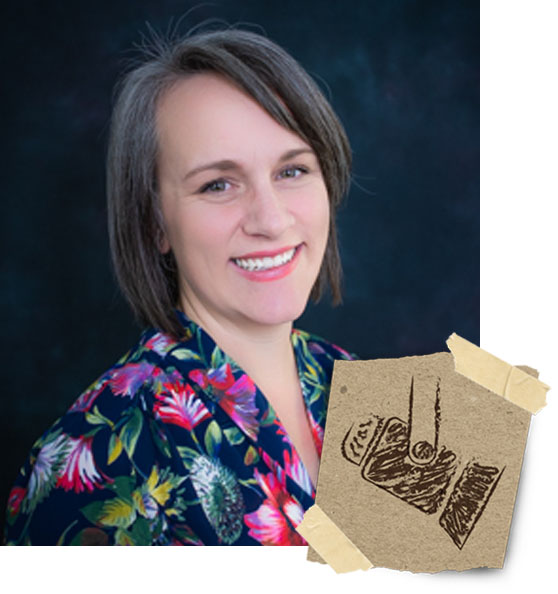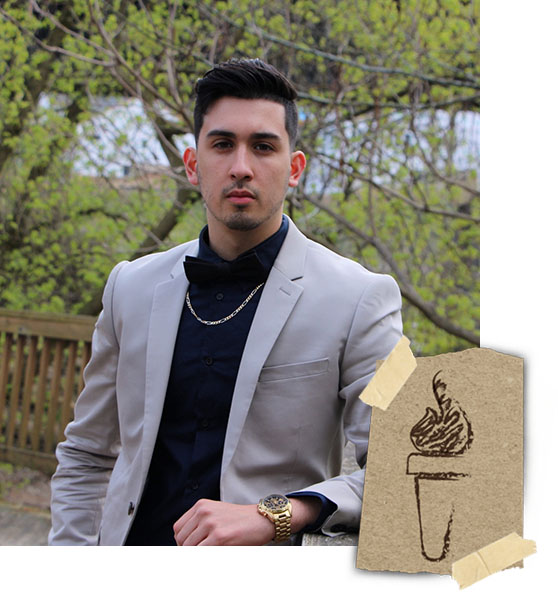Diversity Champion: Dr. Stephanie Nawyn
June 15, 2021 - Liz Schondelmayer
 Dr. Stephanie Nawyn joined MSU's faculty in 2006, bringing with her a passion for humanitarianism that included rigorous research into the experiences of refugees and the people that provide them assistance. A 2013-14 Fulbright Scholar, Dr. Nawyn is also the Co-director of Academic Programs at the MSU Center for Gender in Global Context .
Dr. Stephanie Nawyn joined MSU's faculty in 2006, bringing with her a passion for humanitarianism that included rigorous research into the experiences of refugees and the people that provide them assistance. A 2013-14 Fulbright Scholar, Dr. Nawyn is also the Co-director of Academic Programs at the MSU Center for Gender in Global Context .
After earning her PhD from the University of Southern California, Dr. Nawyn took her first tenure-track position in the MSU Department of Sociology. Dr. Nawyn reflects that her Fulbright Fellowship in Istanbul, Turkey and the positive relationships she's developed with her fellow Spartans have been the best experiences she has had during her time at MSU.
Certainly one of the highlights of my time at MSU was becoming a Fulbright Scholar at Istanbul University from 2013-2014. It was an amazing experience, and while I wasn't on MSU's campus at that time, it was the professional experiences and the resources I had at MSU that made the experience possible.
I had previously done all of my work with a focus on the United States, so I wanted to know more about what was happening to the refugees around the world who never got resettled (as less than 1% of refugees do). I wanted to use my expertise to identify solutions or better pathways for those refugees.
MSU supported me by connecting me with a consultant who helped me put forward a successful application. At the time, I had two small children and a spouse who had to come with me, so there were many challenges I had to overcome and many moments where I thought I was making a huge mistake. But in the end, it worked out really well - I arrived in Turkey just as the migration of Syrian refugees was on a steep increase, allowing me the opportunity to study the situation first-hand.
Another highlight of my time here at MSU is the wonderful friendships and rewarding working relationships I've developed. It's a very large campus and ours is a very large college, so there's a place for just about anybody. I actually have scheduled in my calendar when various coworkers of mine will be fully vaccinated so I can go to their house and give them a hug!
Last year, Dr. Nawyn received grant funding from Elhra, a London-based foundation that supports humanitarian research, to examine how global non-profit organizations that support refugee communities are grappling with the COVID-19 crisis. More information on the funded project can be found here .
A bunch of grants became available right after the pandemic was announced, and each organization wanted findings really quickly - Elrha specifically was funding projects that were only 3 to 6 months long! Once we got notified that we had been awarded the grant, the expectation was that the project would launch very quickly. As researchers, we had to have everything lined up and ready to go.
Because of the quick turnaround time, we had to rely on existing relationships that we could mobilize to get the project done. Luckily, I had been working with the Arab Health Research Network , which was started by the MSU Office of Outreach and Engagement, and was connected with Dr. Adnan Hammad, who was the Director of Health Research at ACCESS located here in Dearborn.
Together, we quickly put together a team of folks from MSU, as well as various organizations in Turkey, Lebanon and Jordan to get the project started. We wanted to study how humanitarian organizations were functioning in the context of this global pandemic, due to the limitations on services that could be provided and the increased cost of COVID-imposed safety measures. With a higher demand for services than before the pandemic started, we wanted to see how these organizations were navigating safety protocols, service policies and different barriers that came with the pandemic.
We finished our data collection in September of last year, and have since hosted two webinars so far in both English and Arabic to share our findings. We were notified of the funding in late May, so it's been just over a year, but all of our data is collected, cleaned, and coded. We finished our 20-page research report and will start publishing our research in academic journals soon.
Dr. Nawyn's passion is fueled by her commitment to helping others - especially those who have been stranded with no place to go.
While there are many social issues that we need to tackle, for me, the situation of refugees is emblematic of a lot of inequalities we have globally. The very existence of refugees is dependent on the existence of nation-states and the rigid boundaries between them which we take for granted. There used to be a porousness to our boundaries, which meant if you felt unsafe in your home country, you could move. There were other places you could go.
Now, if you are unsafe where you live, you may not have anywhere else to go. You don't necessarily have the right to move somewhere else. For example, in the near future, there are multiple island nations that, due to climate change, will literally no longer exist. They will be completely underwater, and the people who live there have no legal right to go somewhere else. Hopefully, another country will take them in, but maybe not. No one has to. So, then what? The idea that there are human beings on this planet that don't have the right to be anywhere is just stunning to me.
While the U.S. grapples with xenophobia and misinformation, Dr. Nawyn dispels many common myths about refugees, and explains why America's "refugee crisis" is a falsified issue.
In a nutshell, there are many myths about refugees - some of which people actually believe, and some that are just used as an excuse to support anti-refugee policies. One of those is the idea that there is a refugee crisis in the United States.
Remember the news story about the Honduran caravan? Those people were moving in a large group, all together, at a set pace every day. We knew exactly when they would arrive, and had time to prepare! It wasn't a surprise. More often, there isn't a crisis of people moving - but instead, a crisis of political will to do anything to help them.
There's also a myth that people will use the guise of being a refugee to get into the United States, and that it's an "easy way" into the country. However, it is actually the hardes t way to get into the United States. There's another myth that refugees are violent predators, when in reality, they themselves are often victims of violence, and are actually less likely to commit crimes in the U.S. than citizens.
The number of refugees we take in is so, so small. We used to take in 100,000-200,000 refugees a year during the 20th century, and now we have an even larger population and economy, which should give us more of an ability to absorb them. Under the last year of the Trump administration, however, our ceiling for how many refugees we could take in was set at 15,000, and ultimately, only a few thousand were actually accepted.
Because of the small number of refugees let into the U.S., the non-profit organizations that help resettle refugees lost their funding, so many had to fire their staff and close their offices. Over half of the resettlement organizations in the U.S. closed. In short, we don't have a problem with too many immigrants, asylum-seekers, or refugees in our country - the only crisis is one of bad information, bad faith and a lack of political will.
Finally, Dr. Nawyn shares things that each of us can do to help refugees in our own communities.
Call, write, or email your elected officials. Be vocal about wanting to support this community. Signing an e-petition is great, but it may not have the same impact as a hand-written letter or a phone call. Get your friends to help you out with this, too.
You can also get involved directly! If you're in a community that has a refugee resettlement agency, consider donating, whether that be money, furniture, clothes - whatever you can give! There often are opportunities to volunteer, too. It is really helpful for refugees to have someone to help them learn English, advocate for them, and help them get acclimated to our way of doing things.
Read more:

Diversity Spotlight
Alumni
Dr. Breanne Grace
Dr. Breanne Grace is a MSU Alumna who earned her PhD in Sociology in 2013 and is now an associate professor at the University of South Carolina's School of Social Work. Her research focuses on finding solutions for the compassionate resettling of displaced people.

Diversity Torch
Student
Julian Trevino
Julian Trevino is a MSU Political Science and Prelaw student. He is also the Associated Students of Michigan State University representative for the College of Social Science. Julian has championed the cause for making East Lansing and MSU, a sanctuary city and campus.

Diversity Matters
We strive to cultivate an inclusive and welcoming college environment that celebrates a diversity of people, ideas, and perspectives.

